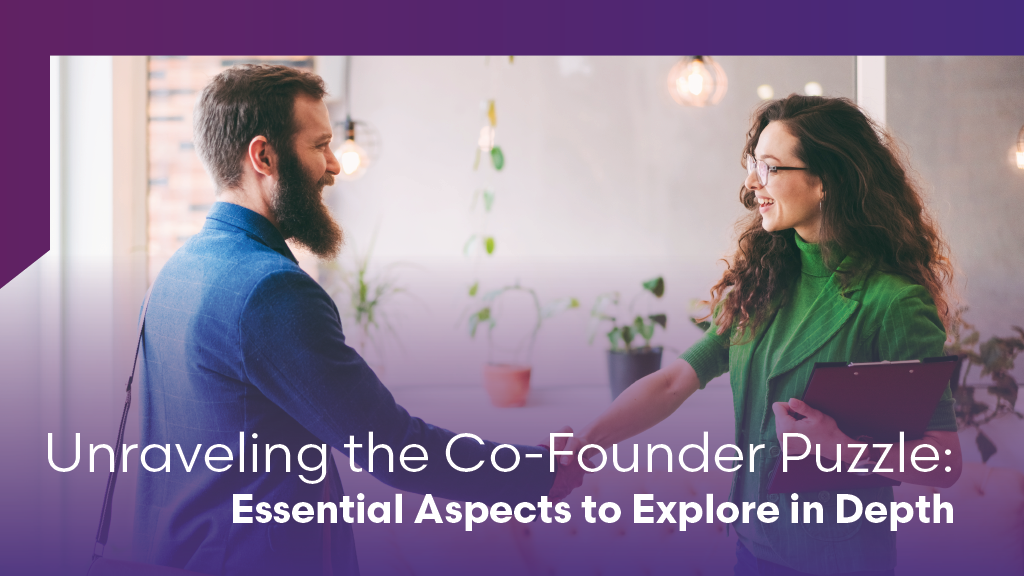
Starting a business venture can be a thrilling yet daunting endeavor. One of the most pivotal decisions you’ll make on this journey is choosing a co-founder, the individual with whom you’ll experience the euphoric highs and inevitable lows of the entrepreneurial ride. It’s critical that you and your potential co-founder resonate on a multitude of levels to ensure a smooth voyage. In this blog post, we aim to provide a comprehensive guide to facilitate your co-founder discussions, drawing from valuable resources such as Y Combinator’s guide on the subject.
Probing the Inner Drive and Defining the Roles
The first step in these deliberations should be to explore each other’s motivations in-depth. Questions such as “Why are you keen on this startup? What are your personal and professional aspirations, in monetary and non-monetary terms?” will help you gauge if your drives synchronize or if there could be potential friction points in the future.
The subsequent step is to crystalize roles and responsibilities. The clarification of who will don the CEO hat, how duties will be divided, and what role each person will play aids in establishing a definitive operational framework from the inception. While these roles might evolve as the business does, having a blueprint for the initial 6-12 months is vital.
Discussing Equity, Finalizing Location, and Evaluating the Business Idea
Equity division is often a complicated matter but addressing it promptly is imperative. There may not be a universal solution, but an open, honest conversation can lay the groundwork for a just agreement.
Another functional detail to consider is the location. What will be the geographical home of the company? Will you operate from a shared physical space or will you adopt a remote working model? These determinations can greatly shape the culture and operations of the company.
A profound analysis of the business idea and its potential pivot scenarios is a crucial conversation. Gauge your potential co-founder’s flexibility by asking, “If our initial idea doesn’t yield results, are you willing to modify the idea?” This conversation can offer a glimpse into your partner’s adaptability and commitment to the venture’s success, irrespective of the specific business idea.
Scrutinizing Financial Commitments and Examining Work-Life Balance
Fully understanding each other’s financial commitments and the circumstances under which each of you would commit to the venture full-time. This requires delving into personal financial situations, willingness to initially work without pay, ability to live on savings, and the minimum salary needed to dedicate full-time effort to the project.
Work-life balance and working schedules are equally crucial. Engage in a conversation about what your routine working schedules would look like, how long you aim to maintain them, and any non-work-related activities that you consider essential to continue.
Constructing a Team and Resolving Conflicts
As your startup expands, the probability of building a team increases. Engage in discussions about your potential co-founder’s values, their approach to building a team, their vision for the company culture, and their preferred management style.
A crucial, though often uncomfortable discussion, revolves around how you will address disagreements and what the recourse is if you decide to part ways professionally. While it may be tough to navigate this conversation, it’s critical to avoiding bitter disagreements or fallouts in the future.
Deepening Personal Connections
Beyond these business-focused aspects, understanding your potential co-founder on a more personal level can yield valuable insights. Engage in dialogue about past experiences, long-term life ambitions, work preferences, strategies for managing stress, and any external pressures that might be in play. This deep-dive will enhance your comprehension of each other and nurture a robust foundation for your partnership.
In conclusion, navigating the co-founder conversation is a delicate dance. By openly discussing these key topics, you’ll have a much clearer vision of whether or not this individual is the right fit for you, and vice versa. Remember, honesty, transparency, and mutual respect are the cornerstones of any successful co-founder relationship. Embark on this conversation with an open mind and a clear intention for the best possible outcome.



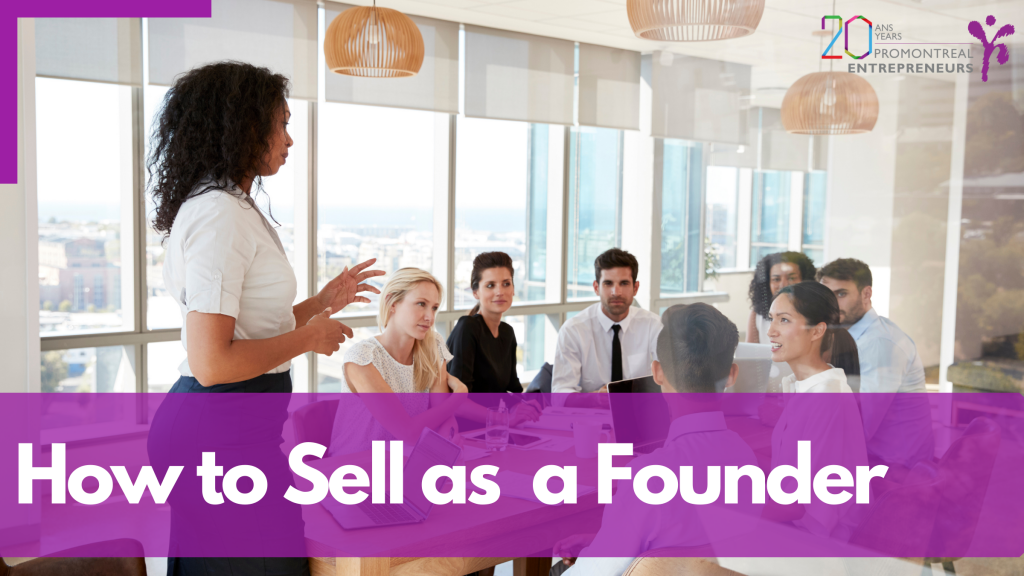
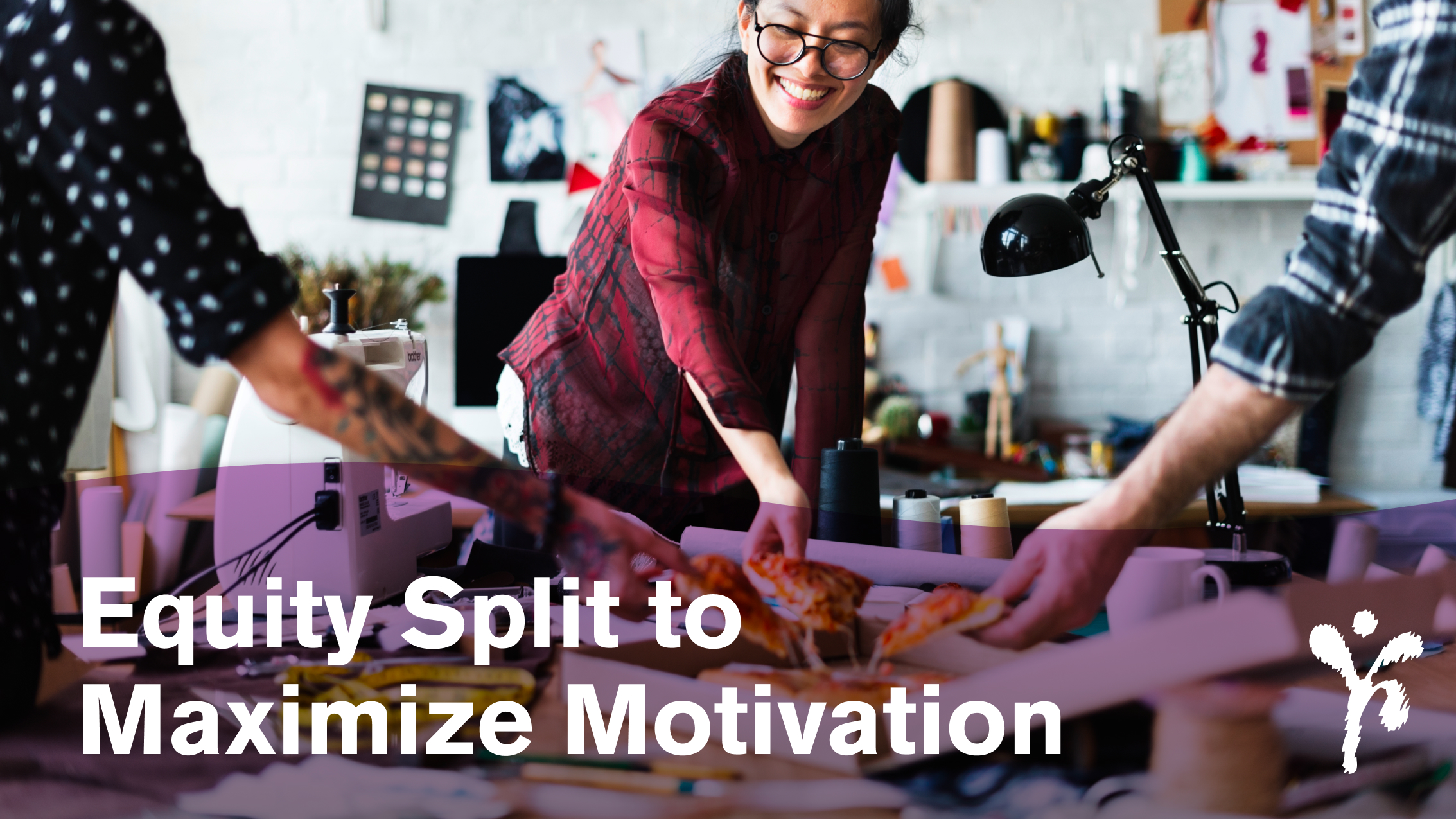 When deciding how much equity split to give to a co-founder, your goal as CEO is to create a split that will maximize motivation. The amount of equity you give to a co-founder will determine the amount of work and energy they put into the start-up.
When deciding how much equity split to give to a co-founder, your goal as CEO is to create a split that will maximize motivation. The amount of equity you give to a co-founder will determine the amount of work and energy they put into the start-up.
 As the saying goes, the best way a mentor can prepare another leader is to expose him or her to other great people. Mentorship is an essential part of the PME Program. On this 18th anniversary, it would only be appropriate to give thanks to our mentors. We may not have all the answers, but what we can do is introduce you to someone who does. We recently got the chance to catch up with our longtime mentor, David Horowitz. David is a seasoned executive always interested in promoting entrepreneurship and international business. With over 30 years at Senior Management level, involved in the manufacturing, marketing and distribution, David wishes to pass on his knowledge gained from 10 years of teaching experience to aspiring entrepreneurs.
As the saying goes, the best way a mentor can prepare another leader is to expose him or her to other great people. Mentorship is an essential part of the PME Program. On this 18th anniversary, it would only be appropriate to give thanks to our mentors. We may not have all the answers, but what we can do is introduce you to someone who does. We recently got the chance to catch up with our longtime mentor, David Horowitz. David is a seasoned executive always interested in promoting entrepreneurship and international business. With over 30 years at Senior Management level, involved in the manufacturing, marketing and distribution, David wishes to pass on his knowledge gained from 10 years of teaching experience to aspiring entrepreneurs.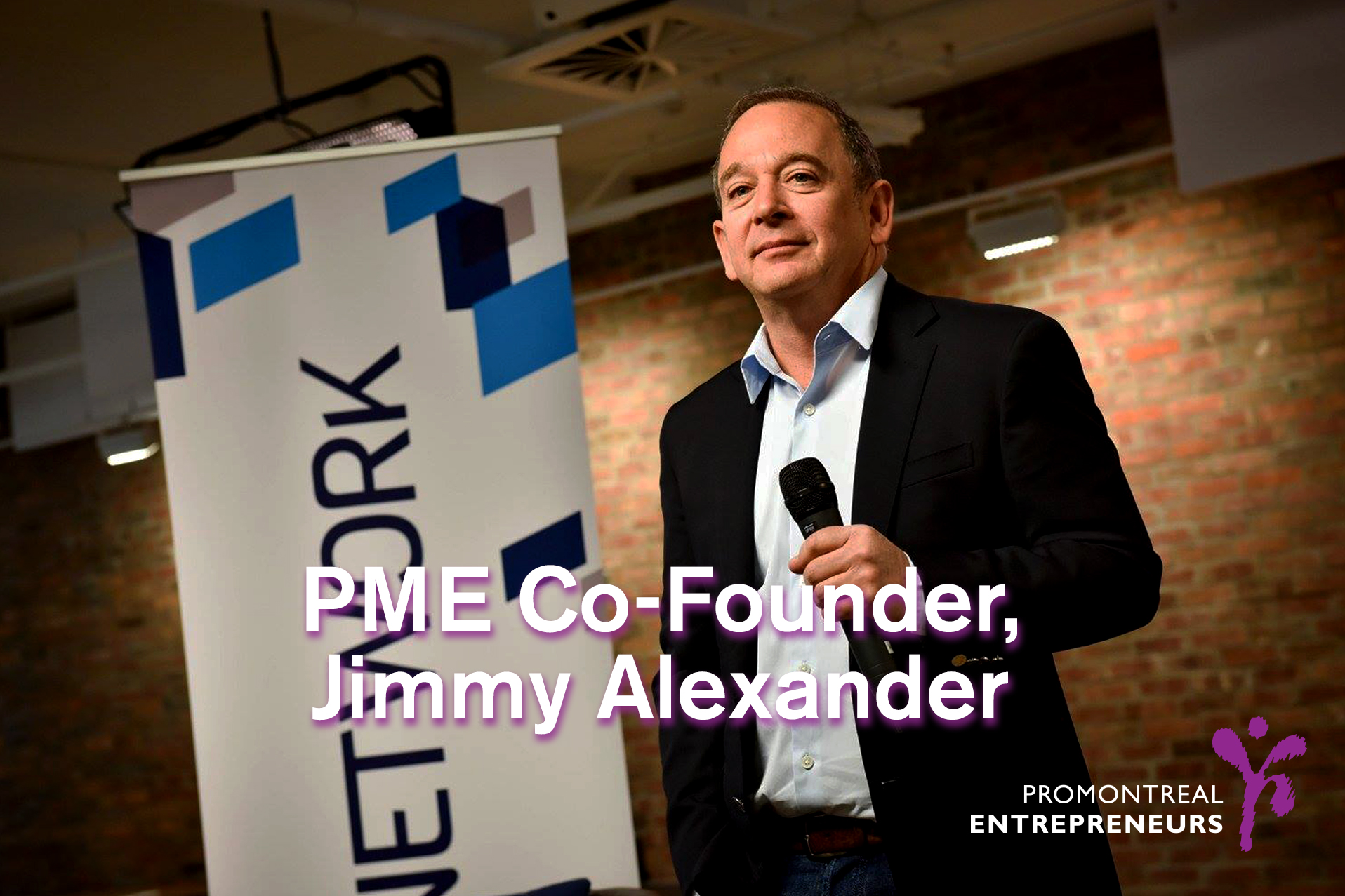
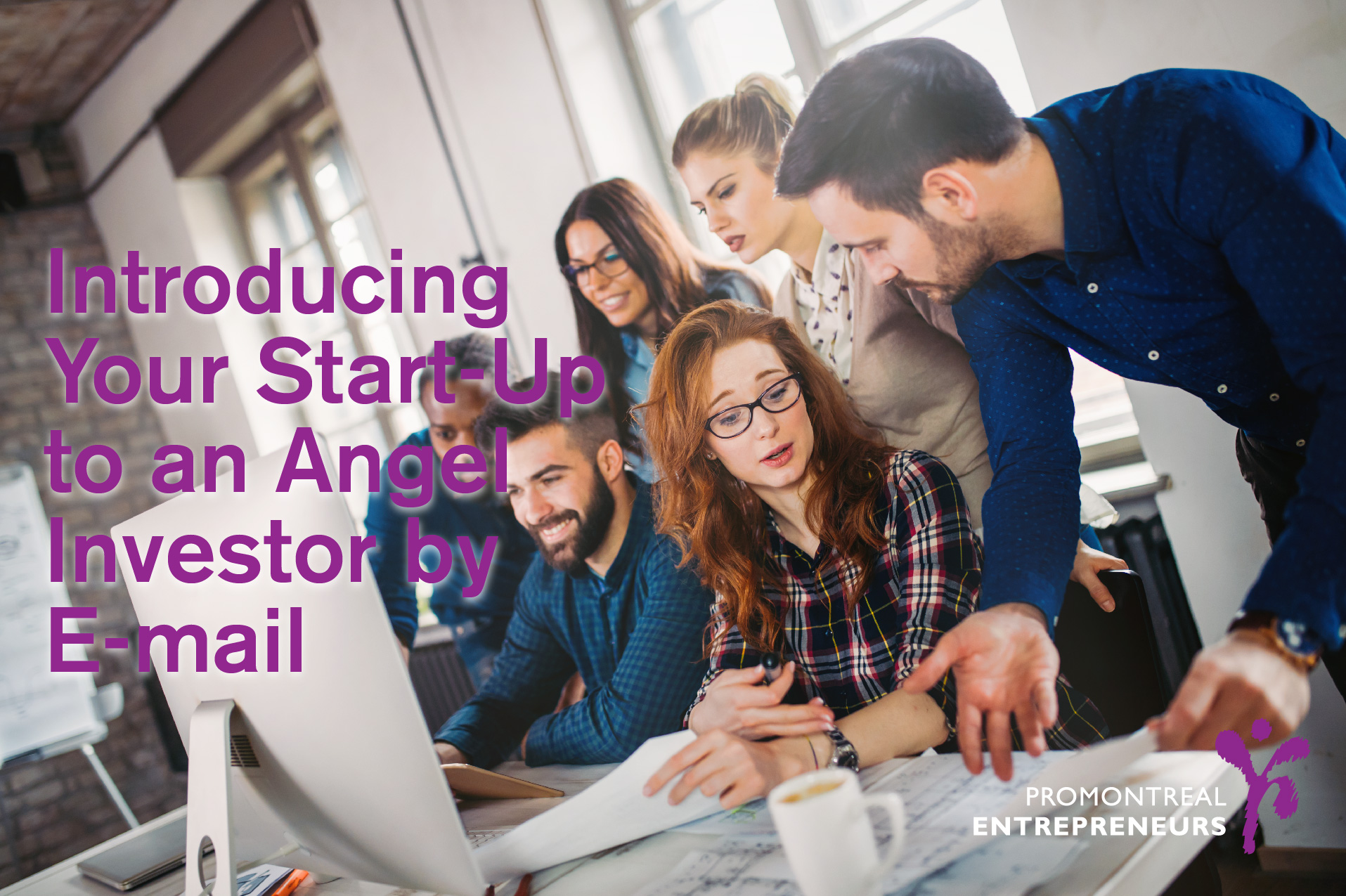 You can only make a first impression once. Introducing your start-up to an angel investor is nerve-wracking to begin with. However, introducing your start-up to an angel investor by e-mail is a lot more challenging. You cannot charm or socialize with an individual by e-mail the same way you would in person. Standing out is much harder. Of course, you are better off reaching out to an angel investor by e-mail after having met them in person. But this isn’t always the case. For this reason it is important that you hatch out a plan that will captivate the interest of an angel investor. As said
You can only make a first impression once. Introducing your start-up to an angel investor is nerve-wracking to begin with. However, introducing your start-up to an angel investor by e-mail is a lot more challenging. You cannot charm or socialize with an individual by e-mail the same way you would in person. Standing out is much harder. Of course, you are better off reaching out to an angel investor by e-mail after having met them in person. But this isn’t always the case. For this reason it is important that you hatch out a plan that will captivate the interest of an angel investor. As said  Trouver le bon cofondateur pour votre entreprise sera une des décisions les plus importantes que vous aurez à prendre en tant qu’entrepreneur. Faites-nous confiance, cette décision déterminera le sort de votre entreprise. Nous avons été témoins des meilleurs et des pires scénarios. Voici quelques conseils à considérer avant de prendre cette décision importante.
Trouver le bon cofondateur pour votre entreprise sera une des décisions les plus importantes que vous aurez à prendre en tant qu’entrepreneur. Faites-nous confiance, cette décision déterminera le sort de votre entreprise. Nous avons été témoins des meilleurs et des pires scénarios. Voici quelques conseils à considérer avant de prendre cette décision importante. Finding the right co-founder for your business will be one of the biggest decisions you will have to make as an entrepreneur. Trust us when we say that this decision will determine the fate of your business. We’ve seen some best and worst-case scenarios. Here are a few tips you will have to consider before making this big decision.
Finding the right co-founder for your business will be one of the biggest decisions you will have to make as an entrepreneur. Trust us when we say that this decision will determine the fate of your business. We’ve seen some best and worst-case scenarios. Here are a few tips you will have to consider before making this big decision.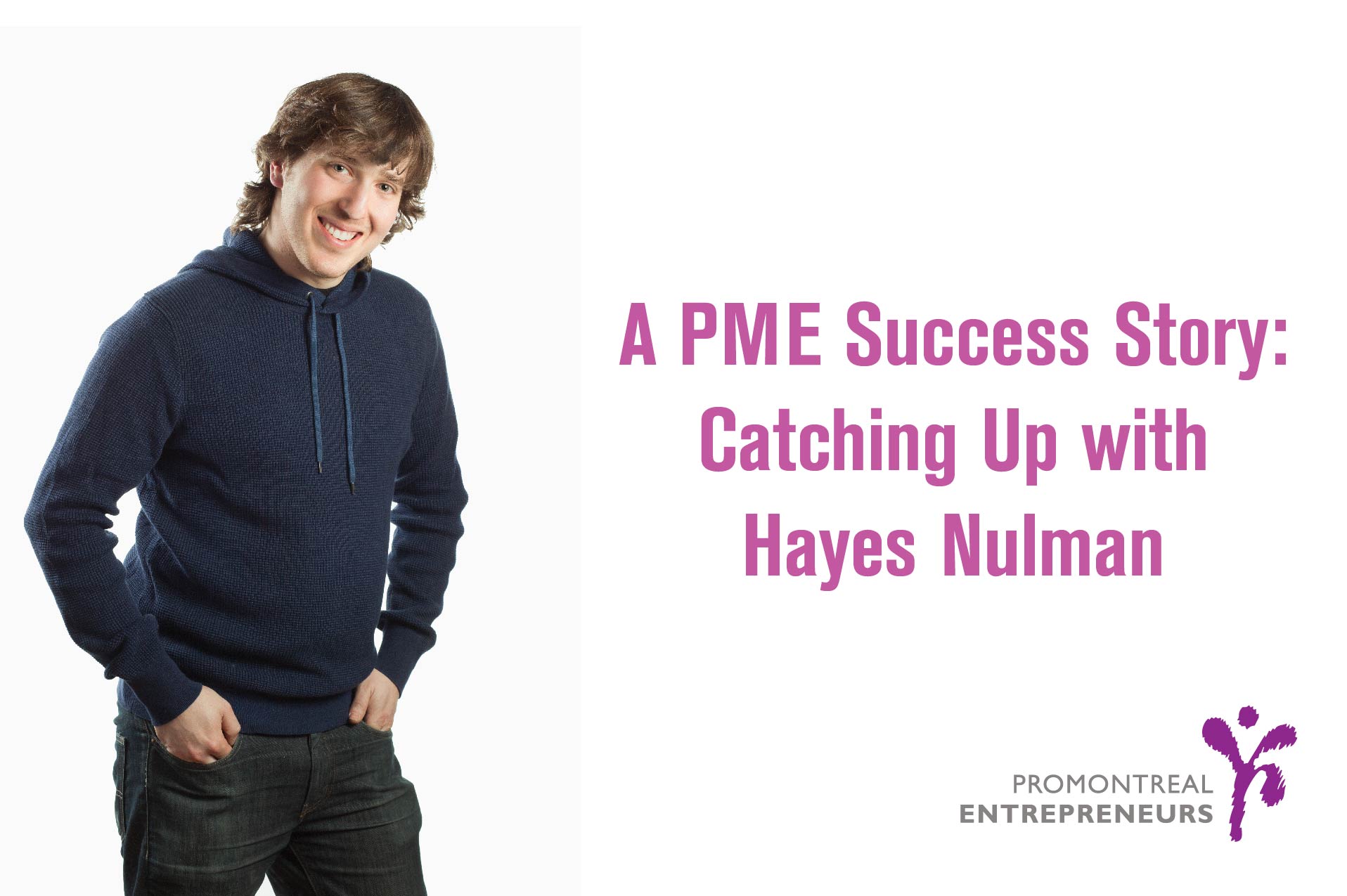 Hayes was part of PME’s 2014 funding round. Still heading operations of his business,
Hayes was part of PME’s 2014 funding round. Still heading operations of his business,